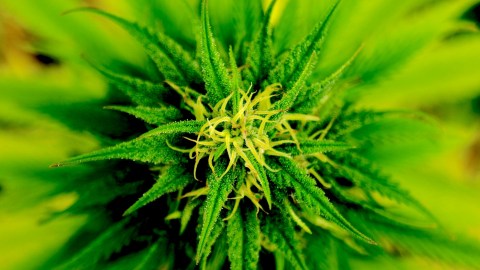How Marijuana May Help Stop the Opioid Abuse Epidemic

As the growing opioid abuse epidemic keeps getting national attention in the U.S., one solution may lie in legalizing cannabis, suggests new study. Researchers found that people who received medical marijuana for pain relief were much more likely to stop using prescription medicines altogether.
Opioid overdoses were responsible for 33,000 Americans dying in 2015, out of 52,000 lethal drug overdoses overall. That overall number went up to 64,000 in 2016, according to the CDC. Over 90 people die from opioids every day in the U.S., leading President Trump to declare the opioid crisis “a national emergency”. It is estimated that between 2000 to 2015, about half a million people died from prescription drug overdoses.
By comparison, the drug sheet created by the U.S. Drug Enforcement Administration states that no deaths have ever been recorded from marijuana overdoses. Of course, there have been accidental deaths due to impairment leading to car crashes and other similar fatal incidents, but those are hard to quantify and have not been sufficiently studied.
The new study, led by the University of New Mexico researchers Jacob Miguel Vigil and Sarah See Stith, was inspired by patient observations of the co-investigator Dr. Anthony Reeve, a medical marijuana pain specialist from Albuquerque, N.M. Reeve noticed that his patients, once enrolled in New Mexico’s Medical Cannabis Program (MCP), would often stop taking any other prescription medications.
In a study that used data from over five years, scientists compared the drug use outcomes for 83 patients involved in the MCP and 42 patients who weren’t. They discovered that 34% of the cannabis program enrollees versus only 1 patient (2%) from the non-cannabis pain relief program stopped using all scheduled prescription drugs by the end of the study. The researchers concluded that legal access to cannabis may lower the use of dangerous prescription meds among a certain group of patients.
“Our current opioid epidemic is the leading preventable form of death in the United States, killing more people than car accidents and gun violence,” said Professor Vigil. “No one has ever died from smoking too much cannabis. Therefore, the relative safety and efficacy of using cannabis in comparison to that of the other scheduled medications should be taken by the health providers and legislators, and may very well to have been considered by the patients in our study.”
As the sample size of the study was relatively small, further research is necessary to support its findings.
Look for the study, titled “Effects of Legal Access to Cannabis on Scheduled II-V Drug Prescriptions” to be published in the upcoming issue of the “Journal of American Medical Directors Association.”





